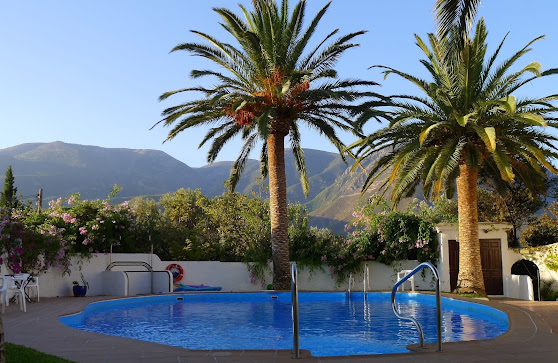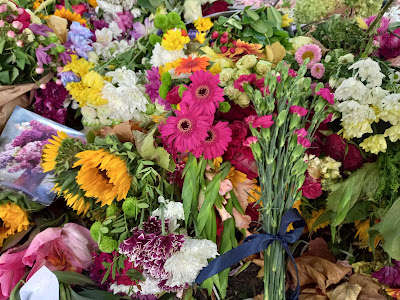One year on since the WHO declared a global pandemic. And how much longer before it ends?
When the WHO declared a global pandemic on March 11th 2020, I thought maybe they were being over-cautious? Perhaps my optimistic view was partly from living in Asia for three years, narrowly missing two potential global pandemics. Having accepted a job in Kuala Lumpur in early February 2003, I quickly watched with concern about the outbreak of SARS in late February 2003. Although SARS had significant impact on five countries, including neighbouring Singapore, it was incredibly contained. By the time I started my job in August 2003, it was no longer a real problem. The second potential pandemic was "bird flu" which was hugely serious for millions of birds in South East Asia, but did not transmit to rapid spread in humans as feared.
Today marks the one-year anniversary of the start of this coronavirus global pandemic. Most anniversaries of difficult events such as the loss of a job or loved one mark a stretch of time passing of remembrance, grief and adjustment. This year-on is different because we are still in the pandemic, we are still in a lockdown and life is still pretty different to normal. Social distancing has become a new-normal, as has not travelling far from home, nor booking holidays nor getting our hair cut. Sometimes it feel like we are on an enormous merry-go-round where we go round in a loop of rising case numbers leading to restrictions followed by lockdown. While tucked away in our homes for months we finally get our case numbers down with a feeling of relief, to then start to open up and repeat the whole process again.One of the most challenging part of the pandemic is the emotional agility required to navigate the constant changes and fluctuations. Somehow we have to find a way to process opposite emotions on a very regular basis. Last week I was taking my daily walk by the sea feeling peaceful and uplifted listening to the bird song and waves lapping at the beach. Ten minutes later I saw a neighbour who I've not bumped into for weeks and engaged in a moving conversation about her loss of her elderly mother from Covid. She was one of 18 residents in a local care home who all died around Christmas during the peak of our second wave. As I walked on I felt touched and saddened by the enormity of the pandemic still around the world and right here close to home.
And alongside this on-going loss and illness worldwide, there is now the real potential impact of the vaccines. This Saturday I am driving my partner to the local drive-through at the GP surgery for his first dose. On the one hand, I am hopeful that the vaccine will slowly have an impact on the pandemic globally. But equally, I can't imagine a life that is back to normal perhaps by June 21st this year. Does anyone else try to picture what post-vaccinated UK will be like this summer? Will all social restrictions really be lifted, and if so will this be safe or will it prompt wave three? The thought of people going "mad" with huge festivals, sporting events and unlimited parties, makes me want to remain a hermit! It feels too much too soon, even with the vaccine success.How can I be cautious and hopeful all at the same time, I wonder? Is it even possible to swing between these two opposites? Recently I heard about the "Stockdale Paradox" which has been written about by Jim Collins in "Good to Great". Stockdale was a US prisoner of war in Vietnam for 7 1/2 years who survived and went on to live fully afterwards. When asked who didn't do so well in the camp, he explained, surprisingly, that it was the optimists. They kept thinking they would be out by Christmas, and weren't, then by Easter, and weren't. The disappointment each time caused immense heartache and suffering. So what was the alternative?
Stockdale survived these years by living more day-to-day in the present moment. He accepted the difficulties and the situation as it was each day, however brutal or challenging. But at the same time, he maintained a deep faith that he would prevail in the end, however long that took. By living with this paradox, he was able to cope. This principle also works well in other less extreme situations, and is even taught at Harvard Business School for potential leaders. It is both hopeful and grounded at the same time.
Living through this pandemic for a year, I have become better at being more focused on the present moment. I am more appreciative of the small moments of pleasure each day and have managed to ride the emotional roller-coaster so far. Perhaps by reaching the end of a whole year of the pandemic today, my mind is less tolerant of just being in the present moment and wants to REALLY know when it will end? Enough now, I say, enough. I am tired and weary of living in a pandemic after a year of this.
"Confront the facts and situation as they are right now.
And retain faith that we will prevail in the end, however long it takes" (Jim Collins)













K wrote "As always a very insightful article Sue , as indeed the article that preceded this ! As indeed are all your articles ! You have a wonderful way of capturing many of our pandemic experiences and translating it so articulately into words, weaving in meaningful metaphors and quotes that are both positive and inspirational. Thank you !"
ReplyDelete"Yesterday's was really spot on, hope and expectation are a real roller coaster and staying in the moment, 'being' where we are is so important."
ReplyDeleteC: "Such a well-balanced read always. Very honest, yet with an air of positivity. Beautiful description and I'm sure it's rung true and helped the people who have read it."
ReplyDelete